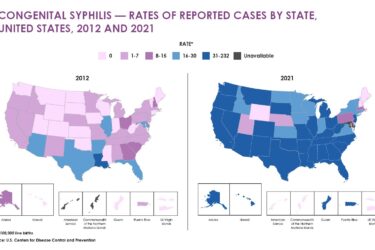
Hurricane Matthew wreaked havoc on the southeastern United States. It left at least 43 people dead and forced many from their homes, due to rising rivers that flooded many communities. In parts of North Carolina, the storm was particularly cruel to lower income residents, reported The Washington Post.
Disasters like this may be hardest on older residents – who may not drive, have serious chronic health conditions or mobility problems. Older people who were forced to evacuate their homes may not have enough medication on hand, or may need ongoing, life-saving treatment, like dialysis. They may be at a loss in figuring out how to obtain needed care, but it is possible.
Once an area has been declared an emergency or disaster by the President, a Governor, or the Secretary of Health and Human Services, the usual Medicare rules for coverage and related concerns may be changed in order to assist those in need, according to the Center for Medicare Advocacy.
For example, beneficiaries may be able to get Medicare coverage for health care at an airport from a military provider, or be able to see an out-of-network provider if they are in a Medicare Advantage plan, or may not have to meet prior-authorization rules.
If a beneficiary can’t get to their usual pharmacy, had to leave home without their medications, or their medications have been lost or damaged, their Medicare drug plan can find another network pharmacy nearby. Medications can be transferred back to a person’s usual pharmacy when the disaster or emergency ends. Open pharmacies in the area can be found through this search.
Those in a Medicare Advantage Plan (Part C) or Medicare Prescription Drug Plan (Part D) are still responsible for paying their premium on time, even when there is an emergency or disaster. Non-payment may lead to dis-enrollment by the plan. However, if someone can’t pay in time due to circumstances such as a natural disaster, they can call Medicare to explain the circumstances and request that their coverage be reinstated.
“If the attempt to reinstate is made within a reasonable time, with a reasonable request, Medicare will reinstate coverage and allow the individual to bring payments up to date,” said Katherine Holt, Associate Director of the Center for Medicare Advocacy, in an email.
If dialysis is needed, original Medicare beneficiaries should call their end-stage renal disease (ESRD) network. This map provides contact information for ESRD networks in every state. Those with a Medicare Advantage Plan should contact their plan directly.
Beneficiaries who needs chemotherapy or other cancer treatments can call the National Cancer Institute (NCI) (1-800-4CANCER) to find other cancer care providers. Medicare Advantage members should contact their plan directly.
Lost Medicare or Medicare plan membership cards or temporary change of address can be handled by contacting Social Security or calling 1-800-772-1213. Medicare Advantage Plan members should contact the plan directly.
Medicare will usually cover the cost to repair or replace equipment or supplies. Generally, Medicare will cover the cost of rentals for items during the time the equipment is being repaired. Medicare Advantage members should contact their plan.
Your readers, viewers or listeners can call 1-800-MEDICARE or visit the Medicare website to find answers to these and many other questions.







